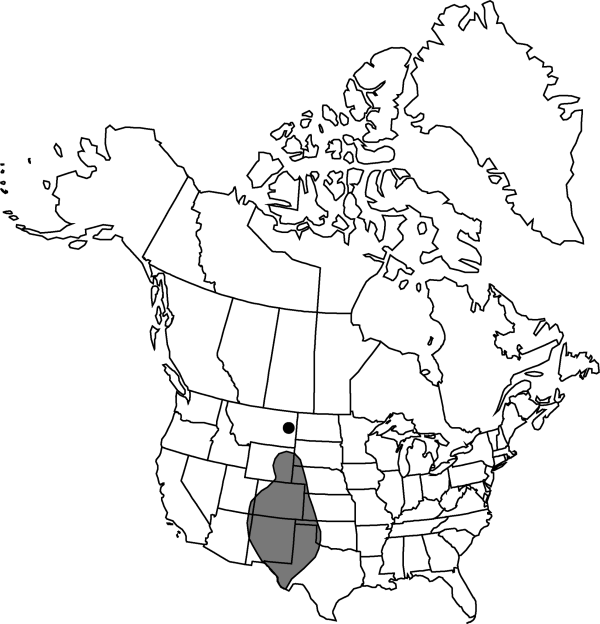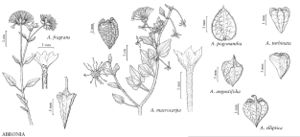Abronia fragrans
Hooker’s J. Bot. Kew Gard. Misc. 5: 261. 1853.
Plants perennial. Stems procumbent to semierect, slightly to moderately branched, elongate, sometimes reddish at base and nodes, glandular-pubescent, viscid. Leaves: petiole 0.5–8 cm; blade ovate to triangular or lanceolate, 3–12 × 1–8 cm, margins entire to subsinuate and slightly undulate, adaxial surface glandular-pubescent, abaxial surface more densely and longer pubescent, or sometimes villous. Inflorescences: peduncle longer than subtending petiole; bracts linear-lanceolate to oval-ovate, 7–25 × 2–12 mm, scarious, glandular-puberulent to short-villous; flowers 30–80. Perianth: tube greenish to reddish purple, 10–25 mm, limb white, (2–) 6–10 mm diam. Fruits winged or not, fusiform and appearing deeply grooved when wingless, when wings not distorted, fruit ± cordate in profile, tapered at base, with prominent beak in broad notch at apex, 5–12 × 2.5–7 mm, indurate, rugose veined or, if wings distorted, fruit ± rhombic in profile and tapered at both ends, or obdeltate and truncate at apex, with prominent beak; wings 4–5, thick, narrow, not dilated at apex, cavities extending throughout; peripheral fruits often distorted, S-shaped in lateral view.
Phenology: Flowering spring–fall.
Habitat: Dry sandy soils, scrub and grasslands
Elevation: 400-2000 m
Distribution

Ariz., Colo., Kans., Mont., Nebr., N.Mex., N.Dak., Okla., S.Dak., Tex., Utah, Wyo., Mexico (Chihuahua)
Discussion
Selected References
None.
